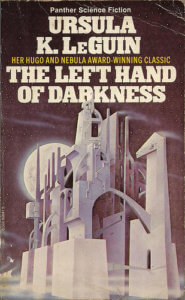Posts Tagged ‘Editing’
So, You Just Finished Writing a 70K Word Sci-Fi Novel…Advice to the Young Writer

So, I had the phone conversation with a young man (son of an old friend) yesterday. I decided to write him a follow up email with a few resources I have appreciated and it made sense to put it into a post. Next time, I can just send the link. Actually…I wouldn’t do that. I would still take the phone call, but it helps to have the information written down in one place.
For the new writer…Here’s my advice:
First, congratulate yourself that you just wrote a novel. That.Is.Amazing. Celebrate and then think like a critic and move on. Try to figure out if this book is what you really want to publish and to the best of your ability, think about whether or not you’re addicted to writing. If you’re not, the road is too hard and very long (for most of us). Don’t keep going unless you know you really LOVE it.
Social Media. You might hate it, but every author has to be on social media. If you want to start somewhere, try Twitter.
On Twitter, connect with and start following folks from the #WritingCommunity. Other hashtags you could check out: #amwritingsciencefiction, #amwritingspeculativefiction, #amwriting, #amwritingfiction. While you’re there you’ll find links to various author websites. Some are way more amazing than mine, others are just a page with a photo and the book cover, with minimal links if any. Begin thinking about your author website. How do you want it to feel? What content, if any, do you want to regularly produce on it?
Find a Critique Group:
It’s great to have beta readers, but it’s even better to find a group of writers, like-minded souls who write and will be willing to read your stuff and give you feedback. I’ve started a number of groups over the years. What I have found is that the most important trait for those in the group is work ethic. If the people aren’t actually writing, then it’s probably not worth your time because A. they won’t submit anything to the group and B. They will be the weakest when it comes to critique. Find people who write and be willing to put in the work for them by being a thorough and honest critic. Work for them and they will work for you. (That’s ideal…always exceptions, but be careful about those exceptions).
Go to Cons (like Emerald City Comic Con or WisCon) and get to know people. You will meet fans and you will meet writers and small publishers. You will make connections and you will have fun. (Photo of Ariel is my daughter, who goes to Cons and always dresses up, mostly not in Disney costumes, but this was the best photo I could find today…plus, it’s bright and cute.)
Books on writing and why I like them:
Story: Structure, Substance, Style and the Principles of Screenwriting by Robert McKee
If you buy one book, I would make it this one. I’ve taken McKee’s class twice (weekend course) and everyone from Pixar would attend in the Bay Area (where I used to live). Screenwriters would fly up from LA to take it in case they had missed the weekend in Southern California. I knew writers who would take it every other year during the time he was touring. He traveled all over the world teaching his course in the 90s and early 2000s. Why? I think he had/has a way of distilling what it takes to tell a great story. It’s less literary and more about structure, the architecture of good storytelling. I refer to this book all the time, also because this was the stuff I never learned in college. For whatever reason, my writing program de-emphasized story structure. Maybe they thought we were smart enough to pick it up, sniff it out and do it ourselves.
*Why don’t I have a photo of this book cover? I have loaned it out…which so many of us writers inevitably do and then regret. That book has escaped my shelves. I have no idea who has it now, so I will probably have to buy it again. DRAT! It’s not cheap!
Steering the Craft by Ursula K. le Guin

le Guin has written a wonderful series, 5 fantasy books (long before Harry Potter) about a wizarding school, called
If you don’t want to buy all five, try out the first one.
UK le Guin is one of my heroes. Here is my review of her science fiction book, THE LEFT HAND OF DARKNESS, A Book Review
The ART of Character by David Corbett
This book (pictured on the top of post) drives home the kinds of techniques that make characters eternal/memorable. It too is practical. The chapter on Protagonist Problems is spot on and one of the best things you can read as a young writer. Corbett captures key mistakes many writers make when crafting characters, especially main characters.
Revising Fiction, by David Madden


